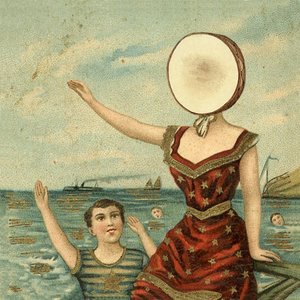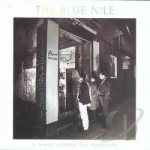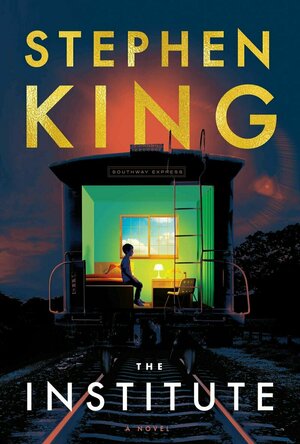Red Devils Over the Yalu: A Chronicle of Soviet Aerial Operations in the Korean War 1950-53
Stuart Britton and Igor Seidov
Book
The Korean War (1950-1953) was the first - and only - full-scale air war in the jet age. It was in...
Blaine Harrison recommended track In the Aeroplane Over the Sea by Neutral Milk Hotel in In the Aeroplane Over the Sea by Neutral Milk Hotel in Music (curated)
Shirley Manson recommended Walk Across the Rooftops by The Blue Nile in Music (curated)
Jesters_folly (230 KP) rated Blinded by the Light (2019) in Movies
Jul 10, 2019
It turns out that 'Blinded by the Light' is not really any of these, it's more of a 'slice of life' it the slice is a couple of years. The film centres on Javed, a Pakistani teen living in Luton, England in the late 1980s. Javed has written diaries and poems for most of his life but, due to his family life he has always kept them to himself. Not long after starting his A levels Javed is introduced to the music of Bruce Springsteen and finds that the lyrics speak to him in a way he's never felt before.
Blinded by the Light is a film about family, friends and finding your place. Javed starts off as a quiet, bookish character who, thanks to the people around him and his growing love of Bruce Springsteen records manages to find himself. However, this change leaded to problems as he clash’s with family and friends.
Being set in 80s and being about a Pakistani family the film also touches on the problem of racism and, from the clips I remembered from the trailer I found myself wondering if it was going to erupt into violence in the style of films like 'Made in England'. However, 'blinded by the Light' takes a more family friendly view, it does show some racism but less ‘violent’ and more personal making ‘Blinded by the Light’ a more family friendly film.
Although music plays a large part of the film it is not the music itself that’s important but the effect that it has on Javed, showing how the right music can change someone’s life.

QuickBooks Accounting
Business and Finance
App
Create invoices, manage your expenses and cash flow, and view your profit and loss. Download...
Hadley (567 KP) rated The Institute in Books
Oct 24, 2019
So why is the government kidnapping children to conduct psychic research on them? At first, it may seem just that: psychic research, because psychic powers seem to be more powerful in young children than adults, but nothing is what it seems. As the boss of this Institute says to the children: " ' There's a war going on, and you have been called upon to serve your country.' " A few sentences later, and she explains it a little more in depth for Ellis: " ' This is not an arms race but a mind race, and if we lose, the consequences would be more than dire; they would be unimaginable. You may only be twelve, but you are a soldier in an undeclared war. The same is true of Kalisha and the others. Do you like it? Of course not. Draftees never do, and draftees sometimes need to be taught that there are consequences for not following orders. I believe you've already had one lesson in that regard. If you're as bright as your records say you are, perhaps you won't need another. If you do, however, you'll get it. This is not your home. This is not your school. You will not simply be given an extra chore or sent to the principal's office or given detention; you will be punished. Clear? ' "
King writes in a third-person point-of-view, which makes it a little disturbing that when any female character he introduces (including girls as young as 11-years-old) are usually introduced by their breast size. It's not uncommon for male writers to introduce female characters this way, but when most of them are children, it can be very off putting for readers. One scene, King makes Ellis notice that Kalisha has 'her hands on her mostly nonexistent hips,' then writes about the character Helen in the same scene: " Another door opened and Helen Simms appeared, clad - - - sort of - - - in what Luke believed were called babydoll pajamas. She had hips, plus other interesting equipment. " Both of these characters are only twelve-years-old.
Aside from the children, King also introduces an important character named Tim Jamieson. This character starts the novel off before readers meet Ellis; we learn that he is a former cop who is traveling to New York while taking odd jobs on his way there, including a night knocker job in DuPray, South Carolina (which becomes very important later on in the story) .
Avery, my personal favorite character in the book, is a ten-year-old who acts like a five-year-old, " The screamer was a little boy in Star Wars pajamas, hammering on doors with small fists that went up and down like pistons. Ten? Avery Dixon looked six, seven at most. The crotch and one leg of his pajama pants were wet and sticking to him. " Dixon and Kalisha are both in the Institute for telepathy. " 'You know so,' Kalisha said, and began to stroke the little boy's [Dixon] hair again. Like had a sense - - - maybe bullshit, maybe not - - - that a lot was going on between them. Inside traffic. " And quickly, the group of children become protective of Dixon, " 'But you need to take care of this one for as long as you can. When I think of Tony or Zeke or that bitch Winona hitting Avery, it makes me want to cry. ' " Kalisha confides in Ellis.
Kalisha, one of the other children that has been kidnapped, is another very likable character that seems to keep all of the other kids' spirits up by either keeping them out of trouble with advice or stopping small fights between them. Another kid named Nicky, the troublemaker of the group, is the stereo-typical bad boy. He gets involved in fistfights with the orderlies that work at the Institute, taking quite a bit of abuse in return. But eventually, the rebelliousness catches up with him, leading him to be moved from Front Half to the dreaded Back Half.
Readers later learn that Back Half is worse than Front Half. Most questions we may have about why the Institute is abusing these children are all answered when readers get to see into Back Half from Kalisha's point-of-view. But what is left unanswered is exactly how many children have been through the Institute? From the amount of children seen just in this story, the numbers could be in the hundreds of thousands!
But, as expected, the children come up with a plan to escape - - - with giving as little detail as possible, an orderlie at the Institute is helped by one of the children with a personal problem, and in return, this orderlie decides to help one of them escape and reveal everything that is the Institute. The instance the escape starts being discussed is when the book really picks up.
King's writing of the abuse our characters sustain is very real (" When Stevie Whipple asked where he'd been and what was wrong, Luke just shook his head. He didn't want to talk about the tank. Not now, not ever. He supposed it was like being in a war. You got drafted, you went, but you didn't want to talk about what you'd seen, or what had happened to you there." ) The scene in which Ellis refuses to speak of is where the orderlie Zeke is trying to make Ellis confess that he is not only telekinesis, but also telepathic: "Zeke hauled him up by the hair. His white tunic was soaked. He looked fixedly at Luke. 'I'm going to put you down again, Luke. Again and again and again. I'll put you down until you drown and then we'll resuscitate you and drown you again and resuscitate you again. Last chance: what number am I thinking of?' "
King brings up a fictional belief that strikes fear in parents everywhere: children being kidnapped for government experiments. Readers witness Ellis' parents being killed, Kalisha being a surrogate mother to kids she barely knows, Nicky being beaten by adults when he refuses to get 'shots for dots,' night terrors, suicide, zap sticks and murder.
This book doesn't read like a regular King book; even with the paranormal aspects occurring in it, it doesn't add up to much. The horror aspect is more in the form of child abuse then paranormal moments. I would only recommend this book to fans of Netflix's 'Stranger Things' and Patterson's 'Maximum Ride.' I don't think I would read this again.
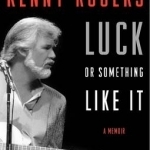
Luck or Something Like it: A Memoir
Book
For more than half a century, Kenny Rogers has been recording some of the most revered and beloved...

Bestline VPN Super Fast Proxy
Productivity and Utilities
App
Bestline VPN, permanent free VPN. Super high VPN speed! Unlimited bandwidth, unlimited security VPN...

Ultimate Fan 101: Tupac Edition
Music and Entertainment
App
The BEST 2Pac App made for the fans by the fans. All you need to stay connected and entertained....
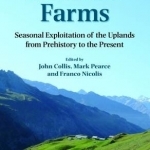
Summer Farms: Seasonal Exploitation of the Uplands from Prehistory to the Present
John Collis, Mark Pearce and Franco Nicolis
Book
Summer farms occur throughout the world where there are rich pastures that can only be utilised for...

